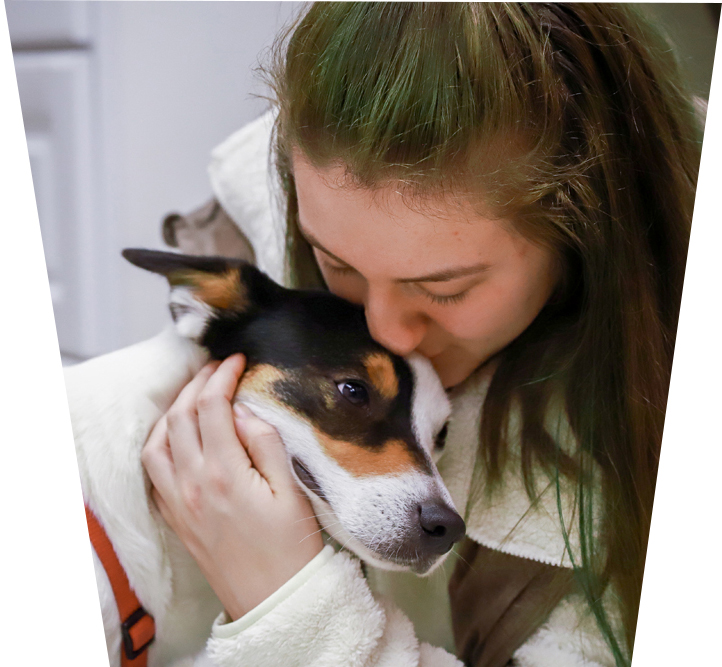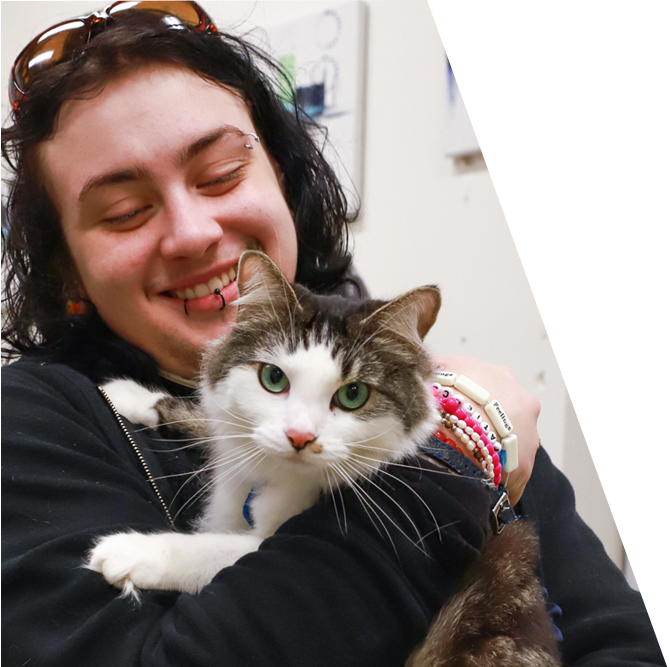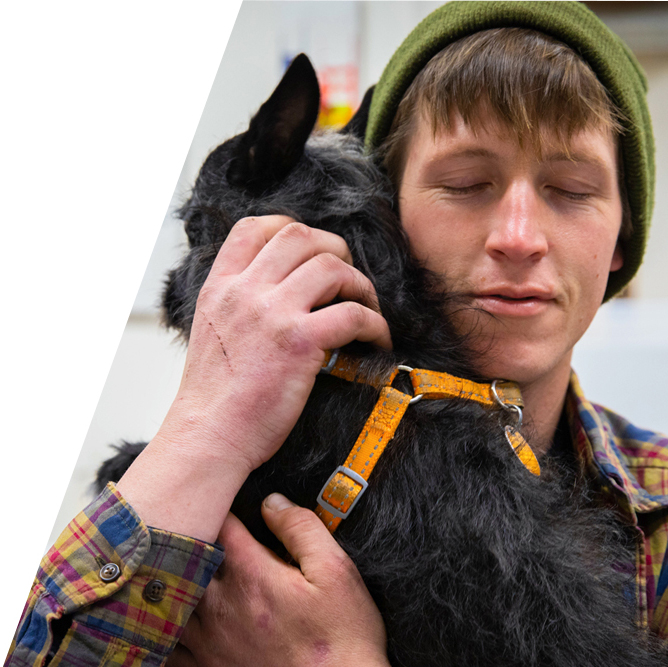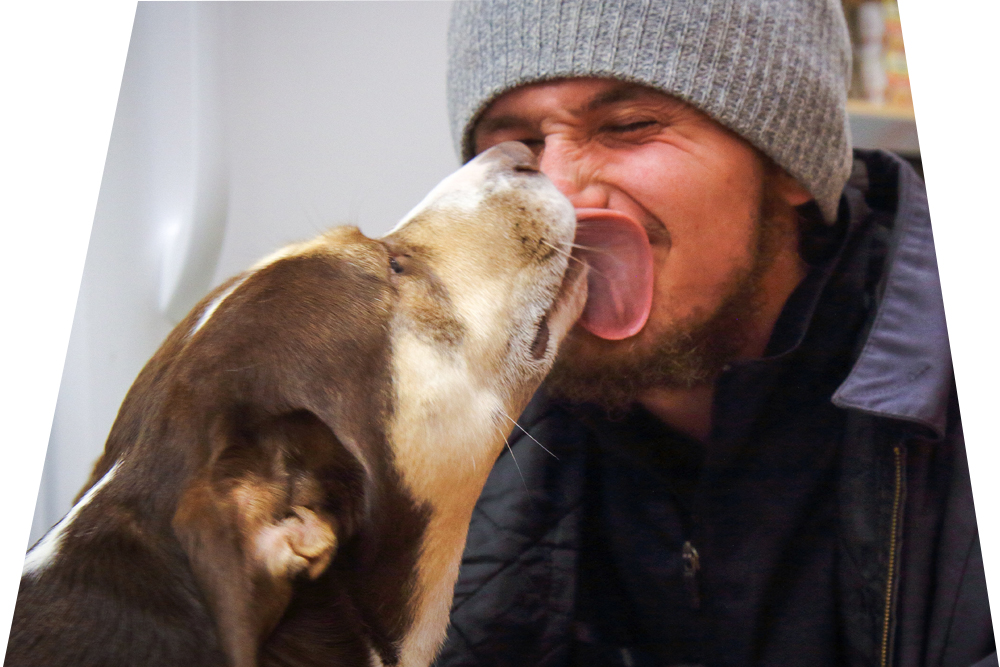A community partnership, including UW and WSU, cares for people and their animals
Bailey is itchy. And though this is probably too much information, his stools are runny. It’s likely he needs some vitamins, too. Like many humans going to their family doctor, Bailey — a dapper dog sporting a skull-and-crossbones bow tie — has a number of issues that require attention.
And Bailey is why a young man named Promo — who has some healthcare needs of his own— is at the One Health Clinic, a collaboration among New Horizons Ministries, Neighborcare Health, the University of Washington and Washington State University. It’s clear he loves his dog.
“I’ve had him for 10 years,” says Promo, running his hands through Bailey’s thick ginger coat. “He’s so soft, isn’t he?”




